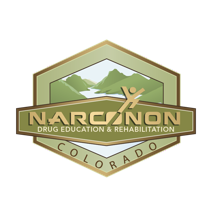Help! My Child Is Addicted to Drugs… Now What?!

Perhaps one of the most difficult things that a parent can go through is having one or more of their children struggle with a drug or alcohol addiction. For many people, the first reaction would be “where did I go wrong?” It is important to not get caught up in the self-blame game because it isn’t going to help anything. The best thing to do is to begin to get proactive about finding a solution to the problem.
If you have recently found out that someone you care about has a substance abuse problem and you aren’t sure how to move forward, here are some good guidelines to point you in the right direction.
1. Seek out professional help.
For some reason, people can be hesitant to seek help when it comes to addiction due to the social stigma that surrounds this problem. It can be helpful to realize that an addiction is just as serious as any other sort of health problem. If your loved one had a broken bone or cancer you probably wouldn’t have doubts about seeking out professional help. While a different sort of problem, addiction can be just as life-threatening as other health issues. There are several treatment centers and helplines out there that can, at the very least, give you advice on what steps should be taken to help your loved one. There is nothing wrong with seeking professional help when it comes to addiction.
2. Find a support system for yourself.
Addiction is a problem that impacts entire families. Unfortunately, most of the attention is placed on the addict themselves as they are the one dealing with the issue first hand. In most cases, not enough attention is given to the people surrounding the addict. Addiction takes a toll on everyone involved. It is very difficult to see a loved one struggle with this problem. This is why it is so important to find support for yourself as well as your loved one. There are many resources out there for families who have loved ones struggling with addiction. Sometimes just knowing that there are other people who are going through the same thing and can understand how hard it can be can make all the difference in the world.
3. Seek out treatment options.
Before confronting your loved on about their addiction it is a good idea to research different types of treatment options. The reason for this is that if your loved one agrees to get help, it is best to get them started right away before they have a chance to change their mind. Even just knowing what is available and possible can help give peace of mind.
4. Confront your loved one.

This can be a difficult step to take because more times than not there will be some type of backlash from the addict. Nobody enjoys being called out on their destructive behavior and the idea of getting sober can be particularly scary for an addict. Do not allow the fear of what the reaction from your loved one will be to hold you back from talking to them about it. Sometimes we have to go through difficult conversations in order to get out of difficult situations. It’s better to have your loved one be mad at you for a while because you confronted them about their addiction than to not say anything at all. At the end of the day, you will want to know that you did everything you could to help, even if they decided not to accept the help.
5. If needed hold an intervention.
Getting an addict to go to treatment can be a difficult task. Addiction can cause people to become manipulative in order to sustain their drug or alcohol use. If you have tried confronting your loved one in the past about getting help and were unsuccessful or you are worried that you cannot get them to agree to go to treatment on your own then it would be a good idea to look into getting help from an interventionist. It can be helpful to have a professional who has been in these types of situations before guide you through the process. They can give you strategies that have worked in the past and knowledge about things to avoid. Sometimes even just talking to an interventionist or researching them on your own can give you the right tools to be successful.
6. Establish firm boundaries.
In order to protect yourself (as much as you can) from the destruction that is addiction, it is essential that you establish healthy boundaries with your loved one. Do not give them money, do not pay their bills, do not enable them, let them know that you would like to be a part of their lives but that you do not want to be around them while they are drunk or high. It is especially important to learn the difference between helping an addict get better and enabling them to continue with their substance abuse. Let them know that you would love to help them get better but that you will not enable them to self destruct.
7. Don’t give up hope.
Most importantly, do not give up hope that things can get better. It may take some people a longer time than others before they come around to the idea of getting sober. Let your loved one know that you will be there to help them when they decide to change. Keep researching ways to help them and know that even if it may not feel like it, there is still a chance that they will get better.


